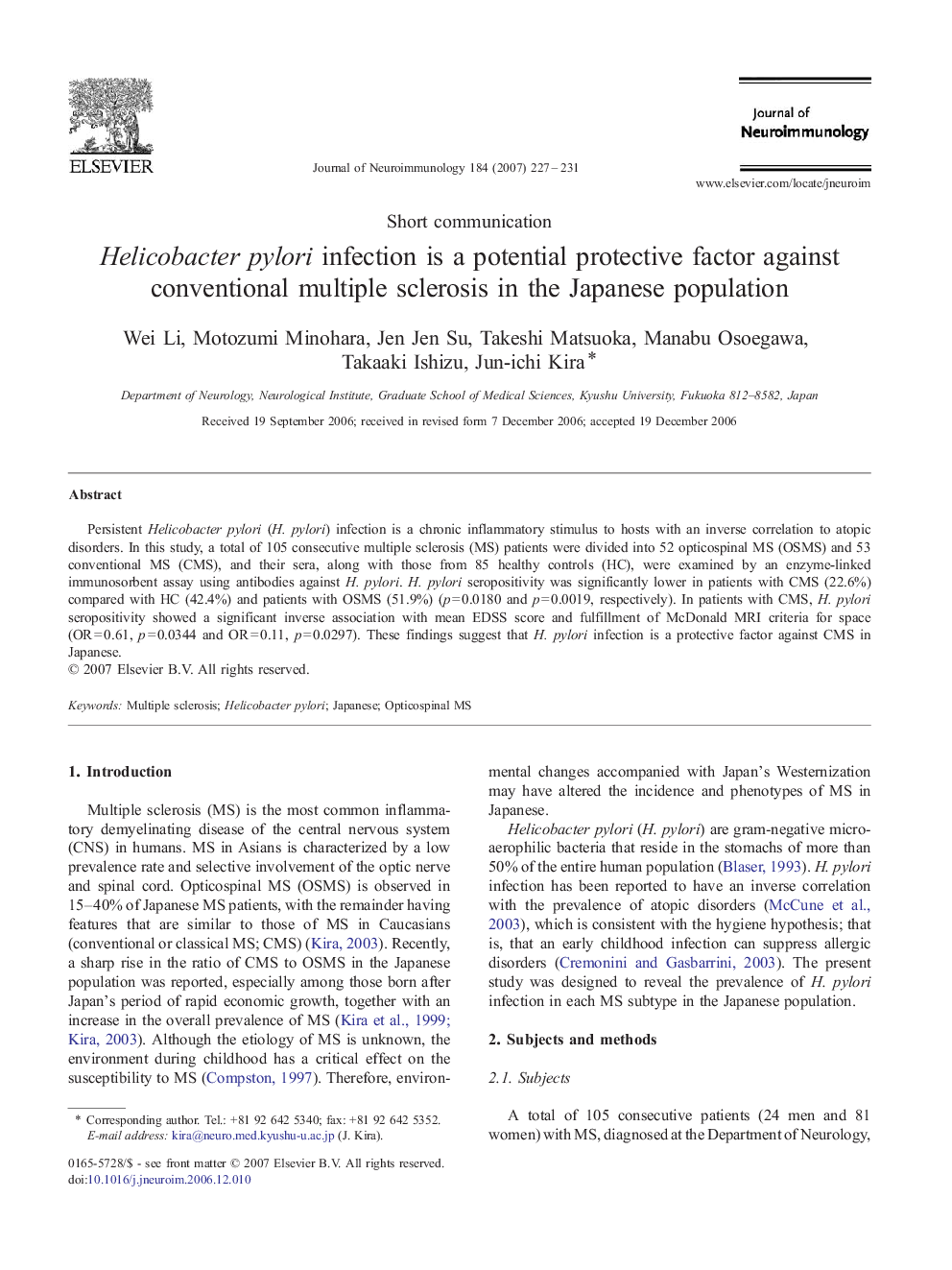| Article ID | Journal | Published Year | Pages | File Type |
|---|---|---|---|---|
| 3065760 | Journal of Neuroimmunology | 2007 | 5 Pages |
Persistent Helicobacter pylori (H. pylori) infection is a chronic inflammatory stimulus to hosts with an inverse correlation to atopic disorders. In this study, a total of 105 consecutive multiple sclerosis (MS) patients were divided into 52 opticospinal MS (OSMS) and 53 conventional MS (CMS), and their sera, along with those from 85 healthy controls (HC), were examined by an enzyme-linked immunosorbent assay using antibodies against H. pylori. H. pylori seropositivity was significantly lower in patients with CMS (22.6%) compared with HC (42.4%) and patients with OSMS (51.9%) (p = 0.0180 and p = 0.0019, respectively). In patients with CMS, H. pylori seropositivity showed a significant inverse association with mean EDSS score and fulfillment of McDonald MRI criteria for space (OR = 0.61, p = 0.0344 and OR = 0.11, p = 0.0297). These findings suggest that H. pylori infection is a protective factor against CMS in Japanese.
